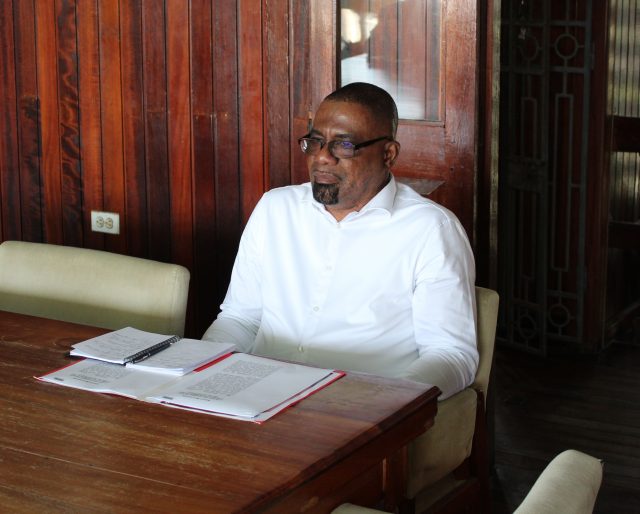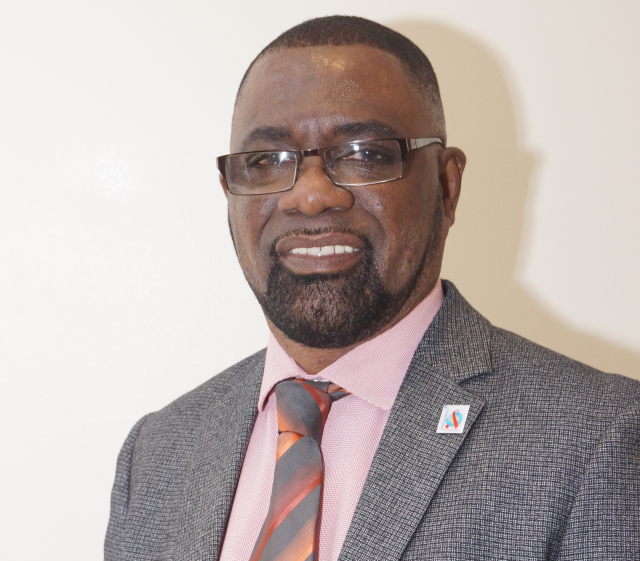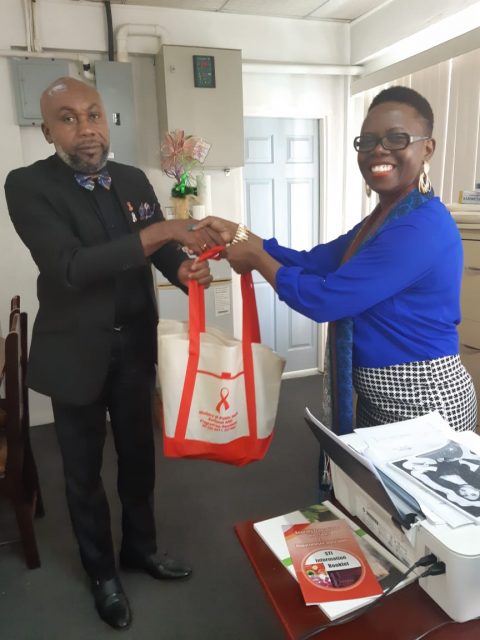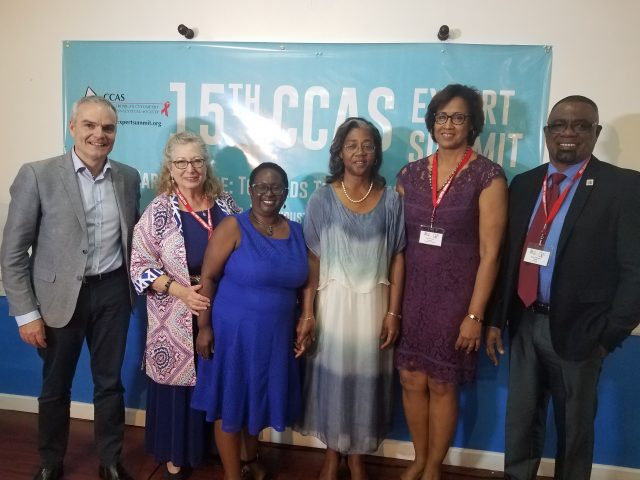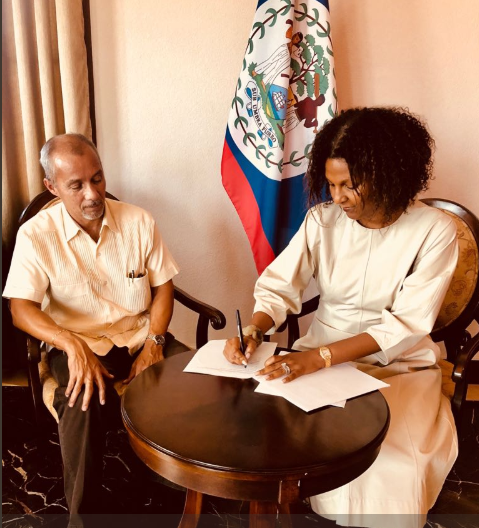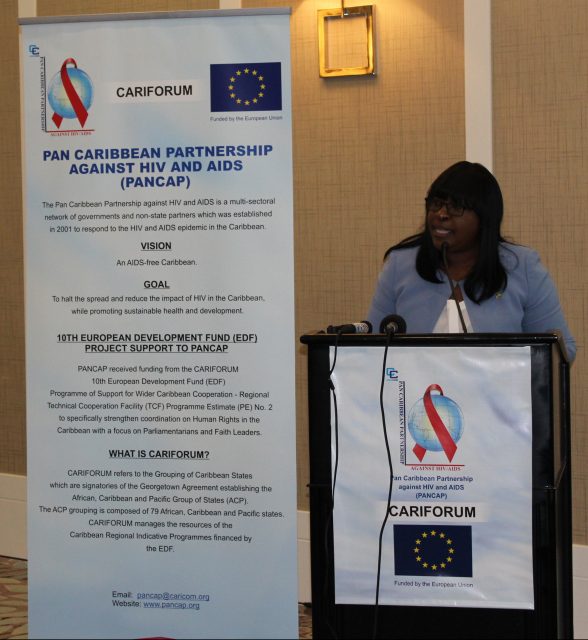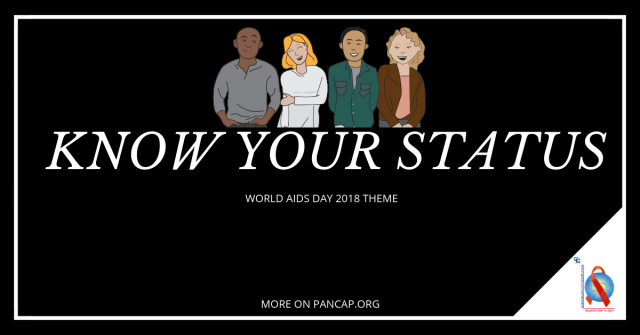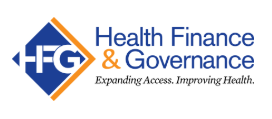Monday 17 September 2018 (PANCAP Coordinating Unit, CARICOM Secretariat): Director of PANCAP, Dereck Springer recently held discussions with the Inter-Religious Organization of Guyana (IRO) on the role of faith leaders in ending AIDS. The Director is advocating for faith leaders to leverage their influence with the communities they serve, youth and vulnerable populations to propagate HIV prevention including testing and other issues related to the achievement of the 90-90-90 Targets and the 2030 goal of ending AIDS.

Present were the Secretary to the IRO, Jennifer Dewar, committee members Pastor Ronald McGarrell of the Family Federation for World Peace and Neil Bacchus of the Muslim Youth League.
The Director explained that PANCAP has been engaging faith leaders since its inception in 2001 in recognition of their reach and influence.
Contributing to the First 90
Referring to the First 90, the Director stated that unlike other sectors, faith leaders have tremendous influence with various ethnicities, religions, and people of all cultural backgrounds. Hence, faith leaders can provide information to large audiences to make informed decisions about knowing their status. He highlighted that this message aligns with the World AIDS Day 2018 theme, “Know your status”, and advised that this would be an ideal opportunity for faith leaders to begin dialogue with their communities on the importance of being tested.
Faith Leaders also critical to the Second 90
“You also have a role to play in relation to the Second 90 in helping people with treatment adherence,” stated the Director. He illustrated that faith leaders can provide information on nutrition and the importance of remaining on treatment. He highlighted that faith leaders are integral to providing PLHIV with counseling and social support as part of the work they do in providing solace and hope.
He also informed the IRO of the seven Caribbean territories and states, that have achieved the dual targets for the elimination of mother-to-child transmission of HIV and Syphilis and emphasized that faith leaders have a role in encouraging HIV positive pregnant women to remain on treatment to avoid transmission to their babies.
Third 90: Faith leaders’ integral to public education on viral suppression
“Faith leaders are also critical to the achievement of the Third 90”, stated Mr. Springer, “you have a captive audience that includes PLHIV and through your messages, you can influence them to remain on medication and become virally suppressed”. He explained that faith leaders are critical to providing community-level education on the benefits of PLHIV achieving viral suppression.
Faith leaders can fill the gap left by diminished public education on HIV
The Director further posited that faith leaders could empower their communities with health and family life education especially regarding young people and the issue of sex and sexuality. The PANCAP Director emphasized that in light of reduced public education on HIV prevention, treatment and care, it has become necessary for faith leaders to fill that gap by providing their communities with critical information and guidance on HIV. He urged the IRO to collaborate with PANCAP particularly with regard to reducing stigma and discrimination, which he highlighted as barriers to vulnerable populations accessing HIV prevention and quality health care.
Outcomes and commitments
The IRO committed to discussing the proposed approaches with the wider body. Ms Dewar also proposed utilizing the influence of IRO members on other committees and boards to propagate the messages. She explained that members also serve on such bodies as the National Commission for the Prevention and Control of Non-Communicable Diseases and can utilize these platforms for HIV education. The IRO also committed to exploring the idea of a liaison between the two entities who would work with PANCAP on HIV education initiatives.
Mr. Springer stated that he was encouraged by the enthusiastic response of the IRO and committed to providing resources to reinforce HIV education initiatives by faith leaders through the provision of public awareness materials. At the culmination of the meeting, he stated, “I am pleased that the IRO is willing to explore utilizing their influence for HIV prevention. Indeed, the role of faith leaders is not to be underestimated at this critical juncture of the region’s HIV response”. The initiative forms part of a series of regional engagements by PANCAP with faith leaders under the Justice for All (JFA) programme.
What are the Joint United Nations Programme on HIV and AIDS (UNAIDS) 90-90-90 Targets?
• By 2020, 90% of all people living with HIV will know their HIV status.
• By 2020, 90% of all people with diagnosed HIV infection will receive sustained antiretroviral therapy.
• By 2020, 90% of all people receiving antiretroviral therapy will have viral suppression

